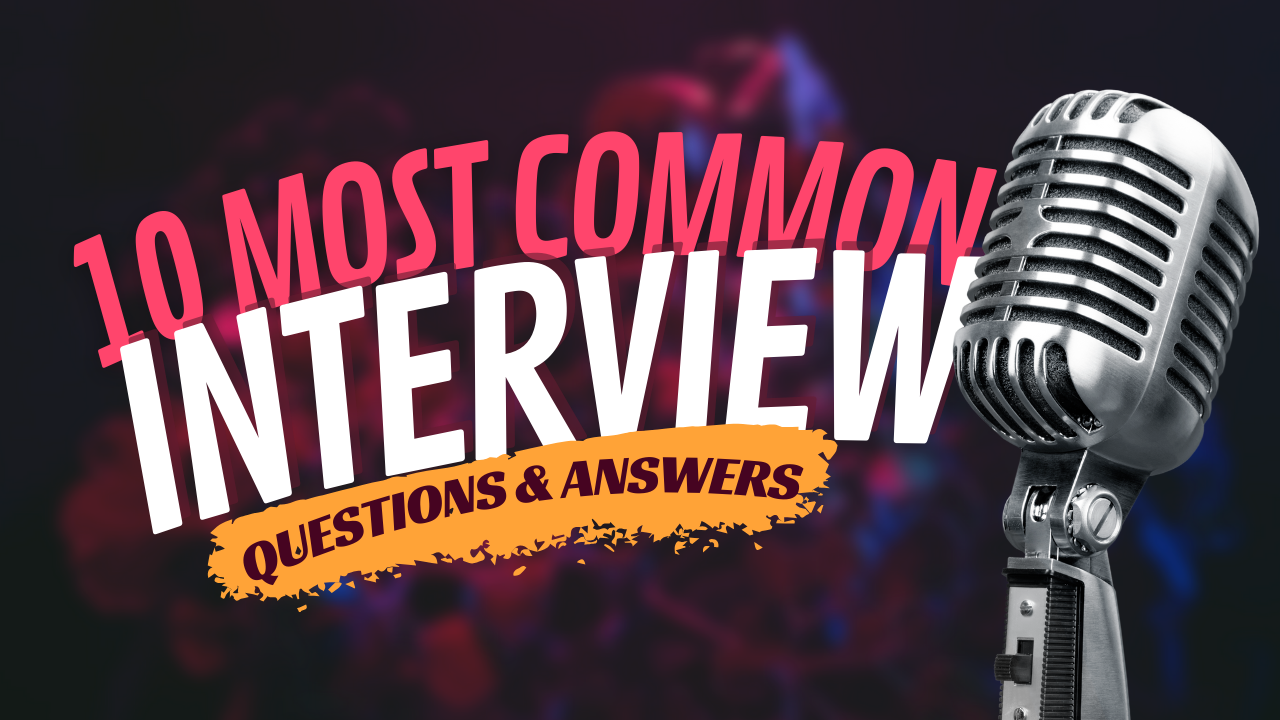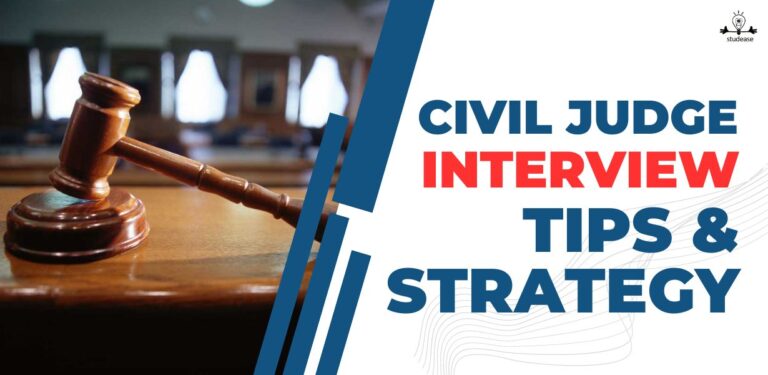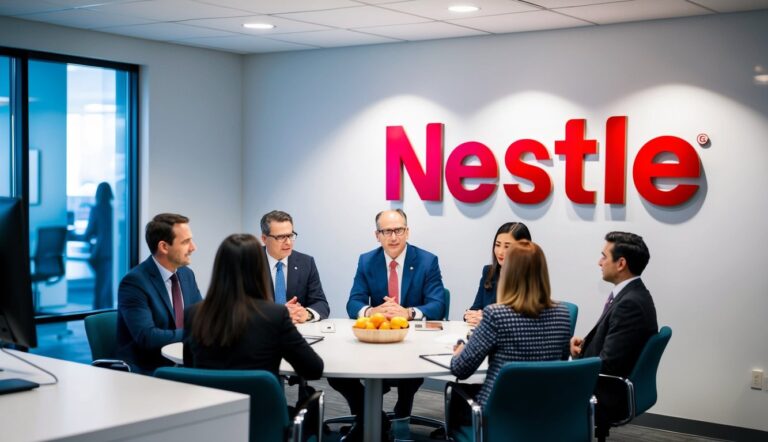10 Most Common Interview Questions and Answers: Your Guide to Success

Navigating a job interview can be time consuming, but being prepared with the right answers can set you apart during the D day.
Employers frequently ask certain key questions to gauge a candidate’s fit for the role. Mastering the answers to the most common interview questions can significantly boost your confidence and performance.

For example, when an employer asks, “Can you tell me about yourself?” they are looking for a concise summary of your experience and skills, not your life story. A well-crafted response showcases your expertise and relevance to the job.
Another common question is, “What are your strengths and weaknesses?” Here, you should highlight strengths that relate to the job and give a balanced view on weaknesses with an emphasis on how you are working to improve them.
By focusing on these and other frequently asked questions, you can walk into your interview prepared and ready to impress. Learn how to craft your answers to make the best impression and increase your chances of landing the job.
Understanding Interview Basics

Preparing for an interview requires research and planning. By understanding the basic elements of an interview, you can boost your confidence and improve your chances of success.
Research the Company: Learn about the company’s mission statement, values, and culture. Visit their website, read news articles, and check their social media. This helps you align your answers with the company’s goals.
Review the Job Description: Know the skills and qualifications required for the job. Make connections between your experience and the job requirements. Highlight these during the interview.
Key Interview Questions: Be ready to answer common questions such as:
- Tell me about yourself: Describe your background, work experience, and how they relate to the job.
- Why do you want to work here?: Show that you understand the company’s mission and values.
- What are your strengths and weaknesses?: Be honest and provide examples.
Practice Your Responses: Rehearse your answers to common questions. You can do this with a friend or in front of a mirror. This will help you answer smoothly and confidently.
Understand the Interviewer’s Perspective: The interviewer wants to know if you’re a good fit for the team and the company culture. Show enthusiasm and adaptability.
Prepare Questions for the Interviewer: Ask about the team, company culture, and growth opportunities. This shows your interest and helps you decide if the company is right for you.
By focusing on these basics, you’ll be well-prepared for your interview.
Personal Introduction for Most Common Interview Questions and Answers

Starting your interview with a strong personal introduction creates a great first impression. Focus on showcasing your background, key achievements, strengths and weaknesses, and career goals.
Articulating Your Background
When asked to “tell me about yourself,” start with a brief overview of your background. Mention your education, relevant work experience, and any pertinent skills.
- Include where you studied and your major.
- Highlight your most recent job and key responsibilities.
- Mention important skills you’ve gained.
Example: “I graduated with a degree in Marketing from XYZ University. I have worked for five years as a Marketing Coordinator, where I managed campaigns and analyzed their effectiveness.”
Highlighting Achievements
Next, zoom in on your top achievements. These highlight your ability to meet goals and bring value to a team.
- Mention awards, completed projects, or promotions.
- Use metrics or statistics to show impact.
- Relate achievements to the job you’re applying for.
Example: “I increased social media engagement by 150% within six months by creating compelling content and engaging with followers.”
Describing Your Strengths and Weaknesses
Talking about strengths and weaknesses can be tricky. Be honest but strategic.
Strengths:
- Focus on qualities that align with the job.
- Use specific examples to illustrate.
Weaknesses:
- Choose a genuine weakness but show how you are working on it.
- Avoid mentioning a critical requirement for the job.
Example Strength: “I’m excellent at time management and often took the lead in project planning.”
Example Weakness: “I used to struggle with public speaking, but I’ve been taking courses to improve my confidence.”
Detailing Your Career Goals
Finally, outline your career goals. This helps interviewers understand your long-term aspirations and how they align with the role.
- Mention specific goals that relate to the job.
- Show enthusiasm for growth and learning.
- Align your goals with the company’s vision if possible.
Example: “I aim to develop my skills in digital marketing and eventually lead a team of marketing professionals, contributing to innovative campaigns.”
10 Common Interview Questions

- Tell me about yourself. Answer: Provide a brief summary of your career background, key skills, and why you’re interested in this role. Focus on experiences relevant to the job.
- What is your greatest strength? Answer: Choose a strength that aligns with the job requirements. For example, “I excel in project management, which has allowed me to successfully lead several high-impact projects.”
- What is your greatest weakness? Answer: Pick a weakness that isn’t crucial for the role and show how you are working to improve it. For example, “I can be overly detail-oriented, but I am learning to balance it with efficiency.”
- Tell me about a time you faced a challenge at work. Answer: Use strategic approach to answer this. Describe the challenge, what you needed to do, your actions, and the positive outcome.
- What are your career goals? Answer: Explain your short-term and long-term goals, making sure they are aligned with the company’s direction. “In the short term, I want to advance into a managerial role, and long-term, I aim to become a department head.”
- Why do you want to work here? Answer: Highlight what excites you about the company and its values. For example, “I am impressed by your commitment to innovation and believe my background in tech development makes me a great fit.”
- Describe a time when you had to work as part of a team. Answer: Mention the project, your role, and how your team collaborated to achieve the goal. Use appropriate and planned method for a structured response.
- What is your greatest accomplishment? Answer: Choose an achievement that highlights relevant skills and aligns with the job. Describe the situation, your actions, and the impact of your success.
- Where do you see yourself in five years? Answer: Show ambition but remain realistic. “I see myself growing within this company, taking on increased responsibilities, and possibly leading a team within five years.”
- Why should we hire you? Answer: Sum up your skills, experiences, and enthusiasm for the role. “My background in marketing and my proactive approach to problems make me an ideal candidate for this position.”
Using these responses can help you present your best self and show how you are the perfect fit for the role you are applying for.
Frequently Asked Questions

These questions often come up in job interviews and require thoughtful and well-prepared answers. Here are some key points you should consider for each question.
Can you tell me a little about yourself?
This question is your chance to make a first impression. Start with a brief summary of your work history and major accomplishments. Focus on aspects of your background that align with the job you are applying for.
How did you hear about this position?
Explain how you discovered the job opening. Be specific; mention if you found it on a particular job board, through a friend, or via the company’s website. It shows your genuine interest in the role and the company.
Why do you want to work at this company?
Research the company beforehand. Mention specific aspects of the company’s mission, culture, or recent achievements that resonate with you. This shows you’ve done your homework and are sincerely interested.
What are your greatest professional strengths?
Identify your top 2-3 strengths that are most relevant to the job. Provide examples of how you have demonstrated these strengths in your past roles. Make sure your strengths align with the requirements of the position.
Where do you see yourself in five years?
This question gauges your long-term interest and commitment. Be honest but align your career goals with the company’s growth. Clearly outline your aspirations and how they can benefit the organization.






